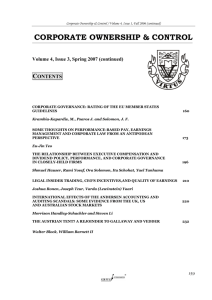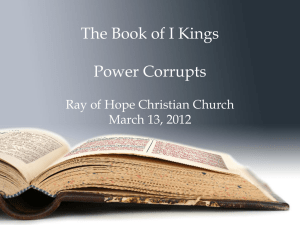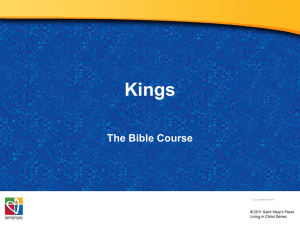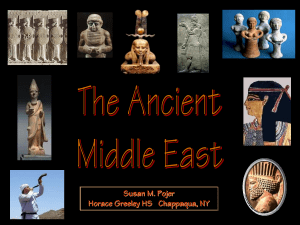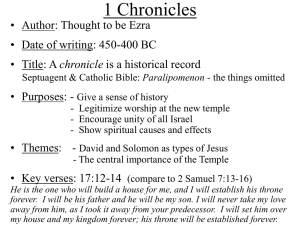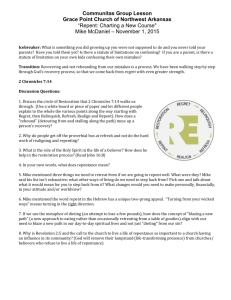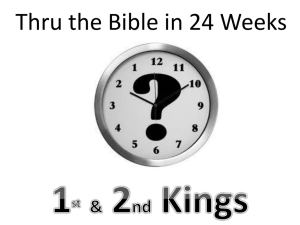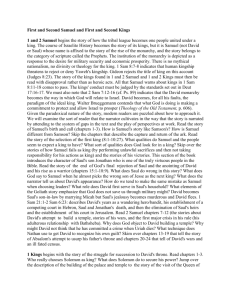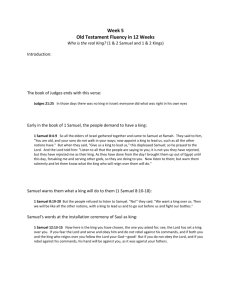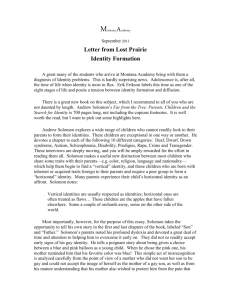King David & Solomon: A Biblical Study Guide
advertisement
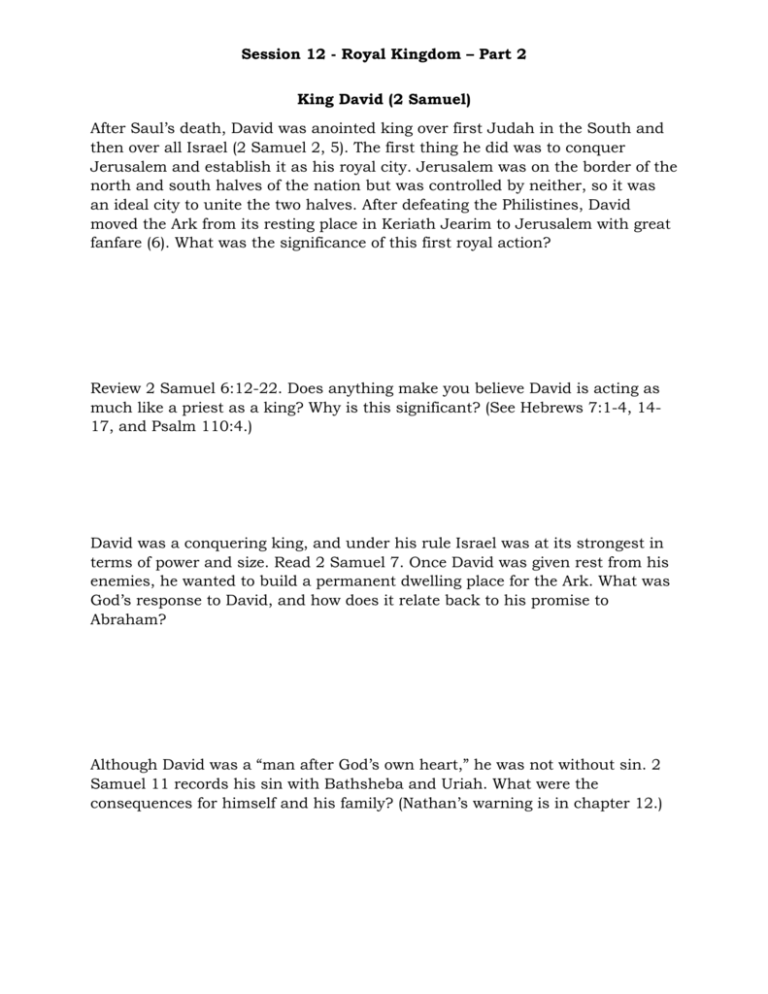
Session 12 - Royal Kingdom – Part 2 King David (2 Samuel) After Saul’s death, David was anointed king over first Judah in the South and then over all Israel (2 Samuel 2, 5). The first thing he did was to conquer Jerusalem and establish it as his royal city. Jerusalem was on the border of the north and south halves of the nation but was controlled by neither, so it was an ideal city to unite the two halves. After defeating the Philistines, David moved the Ark from its resting place in Keriath Jearim to Jerusalem with great fanfare (6). What was the significance of this first royal action? Review 2 Samuel 6:12-22. Does anything make you believe David is acting as much like a priest as a king? Why is this significant? (See Hebrews 7:1-4, 1417, and Psalm 110:4.) David was a conquering king, and under his rule Israel was at its strongest in terms of power and size. Read 2 Samuel 7. Once David was given rest from his enemies, he wanted to build a permanent dwelling place for the Ark. What was God’s response to David, and how does it relate back to his promise to Abraham? Although David was a “man after God’s own heart,” he was not without sin. 2 Samuel 11 records his sin with Bathsheba and Uriah. What were the consequences for himself and his family? (Nathan’s warning is in chapter 12.) Even though God punished David for his sin, he did not withdraw the kingdom. In contrast, when King Saul disobeyed God, God took the kingdom from him (1 Samuel 15). Why the difference? (For David’s response to God’s rebuke, read 2 Samuel 12:15-23 and also Psalm 51, which records his prayer.) King Solomon (1 Kings 1-11) When God told him to ask for anything he wanted, how did he respond (1 Kings 3)? What was God’s response to Solomon’s request? Once Solomon was given peace on all sides, he built a magnificent Temple for the Name of God, a permanent place for God to dwell among his people. What would the king do there, and what was the Temple to be for God’s people? God consecrated the Temple Solomon built for his Name and reminded Solomon of the importance of keeping the covenant in order to continue enjoying its blessings. 1 Kings 9:10-11:13 describes the rest of Solomon’s reign. Read Moses’ instructions for the King in Deuteronomy 17:16-17. How did Solomon fare, and what was the result? Read 1 Kings 11:26-43. Describe Ahijah’s prophecy to Jeroboam, who was a man Solomon put in charge of laborers from the Northern tribes on his building projects. What hope was given for the long-term outlook of David’s dynasty and the kingdom?
